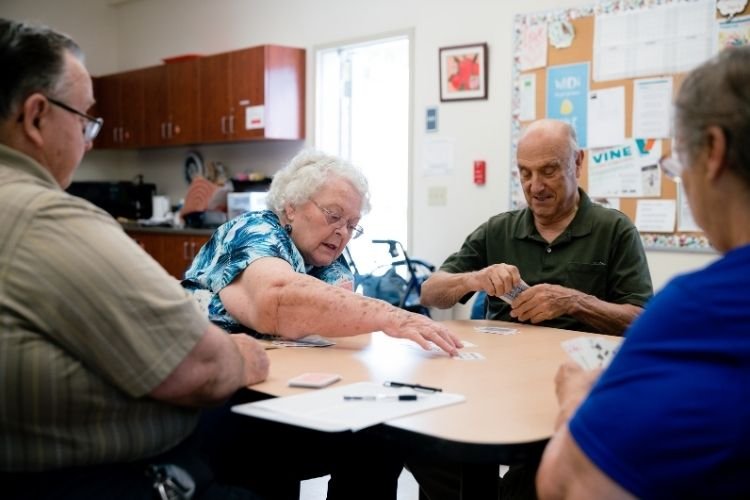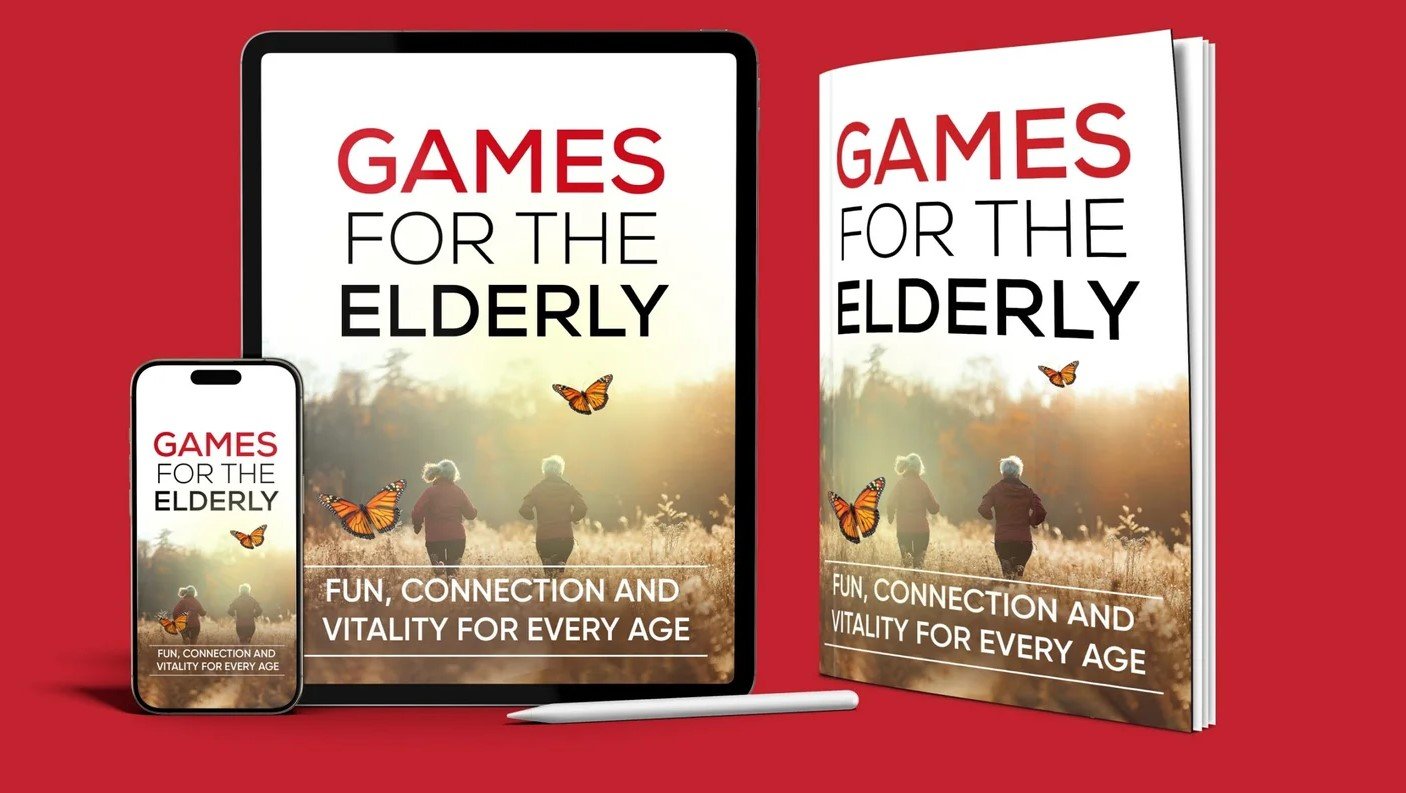![]()
![]()

Aging is often associated with quietness, rest, or slowing down but it doesn’t have to mean disengagement. In fact, one of the most powerful ways to keep life vibrant in the golden years is through play. Games for the elderly are not just light-hearted distractions; they’re essential tools for keeping the mind sharp, body active, and heart joyful.
Engaging in games allows older adults to experience the same benefits as children do ,ie laughter, stimulation, connection, and even healing. From mental stimulation and emotional well-being to mobility and independence, games offer wide-ranging benefits that support healthy aging.

Keeping the brain active becomes increasingly important with age. Mental games challenge memory, concentration, and decision-making skills, which can help delay or prevent cognitive decline.
Some of the best cognitive benefits of games for the eldery include:
Even simple games that require counting, matching, or categorizing stimulate the brain’s neuroplasticity , its ability to form new neural pathways.
Many elders face loneliness or emotional withdrawal, especially after retirement or the loss of a partner. Games for the elderly offer meaningful engagement and help foster social bonds. More than just play, they become a form of emotional nourishment.
Social games in group settings like care homes or community centers give seniors something to look forward to. The laughter shared during a game of charades or the storytelling that unfolds during a game of dominoes is just as valuable as the game itself.
Emotional benefits of games for the eldery include:
Games can bring structure, reduce stress, and build identity in older adults, especially when they’re no longer part of the workforce.
Many games for the elderly encourage gentle physical movement, which is essential for maintaining balance, strength, and coordination. Physical games don’t have to be intense to be effective—they just need to be regular and enjoyable.
Examples of movement-based games include:
Even 15–30 minutes a day of light, game-based movement can improve mobility, reduce fall risk, and boost energy levels.
There’s a wide range of games suitable for different senior abilities and interests. Choosing the right game often depends on the goal—mental stimulation, social connection, or physical activity.
Popular games for the elderly include:
Games should be accessible, easy to understand, and adaptable for those with hearing, vision, or mobility limitations.
Not all seniors have the same level of mobility or cognitive function, which is why personalization is key. Games for the elderly must consider physical, cognitive, and emotional needs to be effective and inclusive.
Ways to tailor games include:
The goal is inclusion, not competition. Seniors should feel welcomed and capable, not overwhelmed or left out.
Technology is changing how older adults engage with games. With the rise of tablets and smartphones, many seniors are exploring brain-training apps, memory games, and even social games with family across distances.
Some tech-friendly game options include:
These platforms are intuitive and often come with tutorials or easy settings. Many seniors have found empowerment and joy in learning to play on these devices—bridging generational gaps and staying connected with younger family members.
Therapists and healthcare providers increasingly use games as part of recovery plans for seniors dealing with stroke, arthritis, or mental health conditions. Recreational therapy through games encourages participation in a non-threatening, low-pressure environment.
Therapeutic benefits of games for the elderly include:
For seniors in assisted living or post-hospital care, games are often a highlight of their day, promoting motivation and mental stimulation without feeling clinical.
For games to truly become part of daily life, the environment matters. Seniors are more likely to participate when the space is welcoming, accessible, and conducive to play.
To create a game-friendly atmosphere:
Games become habits when they’re embedded in the daily rhythm, and when seniors feel valued as participants—not managed as patients.
It’s easy to underestimate how powerful games can be. They may seem like light-hearted distractions, but they actually serve as anchors of identity, independence, and vitality. Games for the elderly affirm the belief that aging does not mean disengagement—it can mean rediscovery.
When a senior wins a round of trivia, shares a laugh in a group activity, or teaches a grandchild an old card trick, they’re not just having fun. They’re connecting to who they are, to the people around them, and to life itself.
Play has purpose—and in the golden years, that purpose is to keep the spirit alive.
Games for the elderly go far beyond mere amusement. They are gateways to joy, mental clarity, physical vitality, and human connection. Whether it’s a quiet afternoon with a crossword puzzle or a lively game of charades in a group, every moment of play enriches the experience of aging.
As caregivers, family members, or seniors ourselves, let’s embrace the power of games—not just as a form of entertainment, but as a cornerstone of elder wellness. With the right games, played in the right spirit, the later years of life can be among the most joyful and rewarding.
